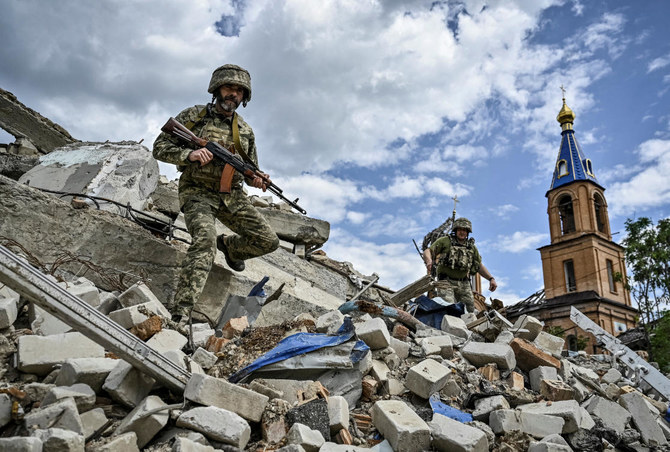NEW DELHI: India and the Gulf Cooperation Council have decided to resume talks on a free trade agreement, India’s trade minister and the GCC secretary-general announced Thursday, 14 years after the last round of negotiations.
The GCC is a union of six countries in the Gulf region — Saudi Arabia, the UAE, Qatar, Kuwait, Oman and Bahrain.
This is the third attempt at a trade pact between the two sides, with two inconclusive rounds held in 2006 and 2008.
The announcement regarding the resumption of talks came after a meeting of the Indian Trade Minister Piyush Goyal with GCC Secretary-General Nayef Falah Al-Hajraf.
I am sure the engagement with the GCC will be in tune with the truly unique and special relations enjoyed by the countries of the GCC region and India. I am quite confident that the two sides will set new benchmarks together.
Piyush Goyal, Indian trade minister
“I am sure the engagement with the GCC will be in tune with the truly unique and special relations enjoyed by the countries of the GCC region and India. I am quite confident that the two sides will set new benchmarks together,” Goyal said at a joint press conference with Al-Hajraf.
“We have agreed to pursue an FTA between GCC and India and resume the negotiation and conclude the same at the earliest.”
He said the GCC was already India’s largest trading partner, with the bilateral merchandise trade valued at $154 billion and bilateral trade in services at $14 billion in the year 2021-22.
The GCC countries contribute almost 35 percent of India’s oil imports and 70 percent of its gas imports, according to Indian commerce ministry data.
India’s overall crude oil imports from the GCC remained about $48 billion, while liquefied natural gas and liquefied petroleum gas imports stood at about $21 billion in 2021-22.
“Over the last two years or so, the world has been hit by the pandemic and the economic outlook looked uncertain and it is the time to capitalize on the already existing strong relations between the GCC and India,” Al-Hajraf said in his opening statement.
He said India and the GCC were making joint efforts in the areas including trade, investment, technology, climate change and food security.
“We very much appreciate the contributions made by the Indian expats living in the GCC countries and contributing to the GCC economy,” the GCC secretary-general said.
There are an estimated 32 million non-resident Indians across the world, and nearly half of them are estimated to be working in Gulf countries.
India earlier this year signed an FTA with the UAE, which is now the third largest trading partner of the South Asian republic after the US and China.
India received $87 billion in foreign remittances in 2021 and a sizable chunk of this amount came from the Gulf region, according to a report published by the World Bank.
“GCC countries are the most important component of India's Act West policy, and this important economic bloc in the region is the largest trading partner among regional organizations,” Muddassir Quamar of the New Delhi-based Institute of Defense Studies and Analyses think tank told Arab News.
“The FTA will further boost bilateral trade and remove any hurdles faced by industries in both India and GCC countries in export-import.”
The trade pact “will be the next critical step in our special strategic partnership with GCC countries,” said Anil Trigunayat, India’s former ambassador to Jordan.
“The historic and civilizational connect has been converted into a mutually beneficial strategic opportunity, therefore it is natural that the two sides find an institutional mechanism like FTA at the earliest,” Trigunayat told Arab News.
It “will comprehensively and futuristically encompass all areas of possible cooperation — trade, technology, services, mobility, investments — by addressing genuine concerns of both sides.”
Manish Singhal of the Federation of Indian Chambers of Commerce and Industry said the “free trade agreement with the GCC has huge economic potential for India.”
He added: “If it’s a comprehensive FTA, then the investments and mutual recognition of standards in the pharmaceutical and engineering sectors will see a big boost, especially in terms of our exports.”
























